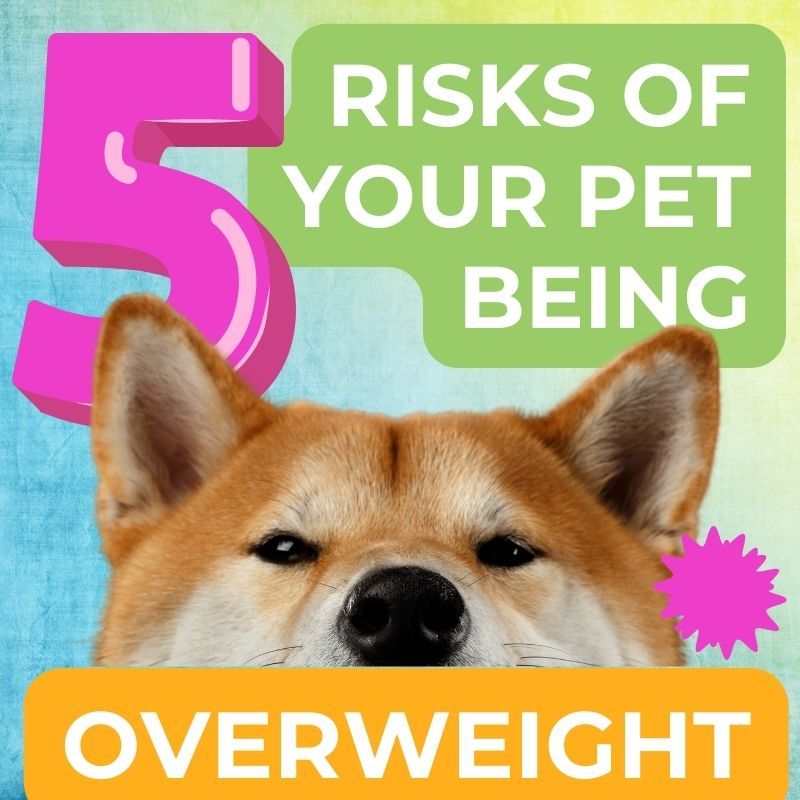In the contemporary landscape of animal care, the observation of canine obesity has burgeoned into a pressing concern. The affection we feel for our dogs can sometimes blur the line between love and responsibility. As a dedicated companion, it is vital to understand whether the condition of having an overweight dog constitutes a form of animal cruelty. To dissect this intricate issue, we must embark on an exploration of health risks associated with canine obesity, as well as the moral obligations that stem from pet ownership.
The reality is stark: a staggering percentage of dogs in the United States are overweight or obese. Various studies suggest that between 30% to 50% of dogs are affected, marking a noteworthy trend that dog owners must not ignore. This phenomenon largely stems from the modern lifestyle that prioritizes convenience. Processed dog foods, coupled with a sedentary lifestyle and inadequate physical activity, create a perfect storm for weight gain. However, the repercussions are far more grave than simply aesthetic. Canine obesity harbors a plethora of health risks akin to humans, including diabetes, arthritis, cardiovascular diseases, and even a reduced lifespan.
To delve deeper, the physiological implications of obesity in dogs are profound. Excess weight places undue strain on their joints, making mobility increasingly difficult. Imagine a once sprightly golden retriever now struggling to bound up the stairs or a spry beagle reluctant to chase a ball. The once joyful spirit is suppressed by the hefty burden of excess weight. Heart health deteriorates, as the heart must work overtime to deliver blood and oxygen throughout a heavier frame. Such conditions can lay the groundwork for a myriad of preventable ailments that diminish quality of life.
For many pet owners, the journey of allowing a dog to become overweight originates innocently. Treats, table scraps, and an indulgent lifestyle may seem harmless. However, therein lies the crux of the matter: the moral responsibility that each owner holds. It transcends the mere act of providing shelter and affection. A commitment to the dog’s health and well-being necessitates vigilance and proactive engagement. This leads to a crucial inquiry: Does failing to regulate a dog’s weight and health decisions translate to neglect or cruelty?
Animal cruelty, in its traditional sense, is understood as the purposeful infliction of harm or suffering upon an animal. However, neglect can also be considered cruelty when it stems from ignorance or apathy. An owner who allows their dog to become overweight, despite understanding the consequences, may be inadvertently committing a form of cruelty. By failing to provide a balanced diet and adequate exercise, the owner neglects the primary responsibility towards instilling a healthy lifestyle. Thus, while the intent may not be malicious, the result can be equally detrimental.
It’s essential to consider that a dog’s health issues arising from obesity often extend beyond physical impairment. Emotional and psychological ramifications are also notable. Dogs are not merely creatures of instinct; they exhibit emotions, affection, and companionship. An overweight dog may also face social exclusion. Young dogs tend to play and interact with one another, yet an overweight dog might find itself sidelined during playtime. This social isolation can exacerbate feelings of anxiety or depression, propelling an unfortunate cycle that perpetuates their condition. In this way, the weight of responsibility grows even heavier.
Moreover, specificity in diet plays an indispensable role in a dog’s well-being. The commercial pet food industry has evolved, offering a plethora of options, yet a keen eye is necessary to discern unsatisfactory products. Owners must undertake the due diligence to ensure not only balanced nutrition but also an appropriate caloric intake. Consultation with a veterinarian is paramount, as they can recommend tailored diets based on age, breed, and specific health concerns, thereby shielding dogs from the detrimental effects of obesity.
The discussion must also encompass exercise. Physical activity is not merely beneficial; it is essential. Dogs thrive on stimulation, and regular exercise serves as a springboard for mental enrichment as well. From brisk daily walks to interactive games of fetch, the possibilities to enhance a dog’s activity level are endless. An involved pet owner is not only lengthening their companion’s lifespan but also enhancing their overall quality of life.
Another vital factor worth exploring is the stigmatization often associated with owning an overweight dog. Society tends to view nudging chubby canines as an adorable quirk, oblivious to the underlying health perils. This normalization of fatness can trivialize serious issues, thereby perpetuating harm. As conscientious animal advocates, it becomes pivotal to foster a culture of awareness, encouraging dialogue and education regarding canine health.
In conclusion, the conversation surrounding overweight dogs necessitates a nuanced understanding of animal care and ethical responsibility. Having an overweight dog can very well cross the line into the realm of animal cruelty, particularly when negligence or ignorance restrains an owner’s ability to foster a healthy environment. With knowledge comes power, and it is incumbent upon pet owners to remain vigilant, ensuring their furry companions thrive both emotionally and physically. Abundant love is only truly effective when allied with responsible practices that protect and enhance the lives of our four-legged friends. Only then can we claim to be the guardians they deserves.








